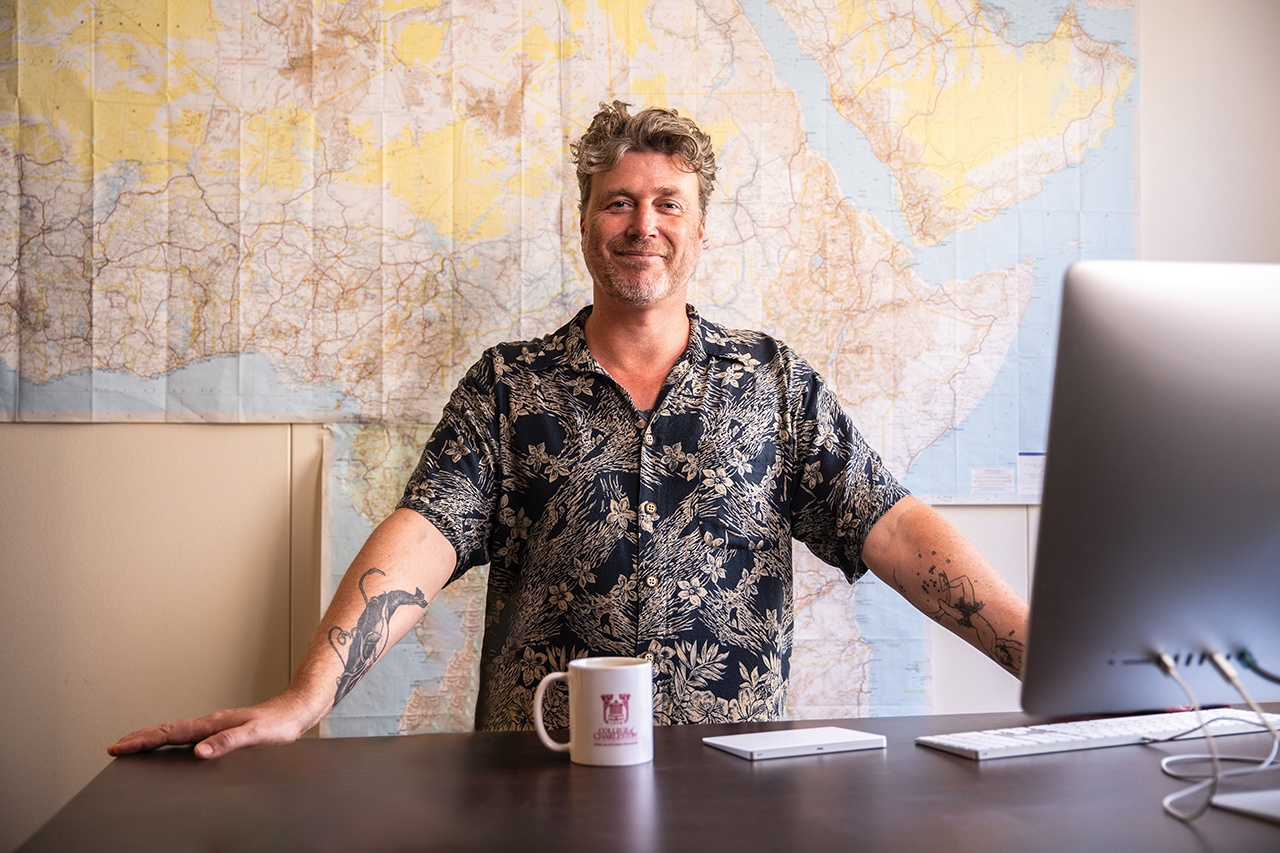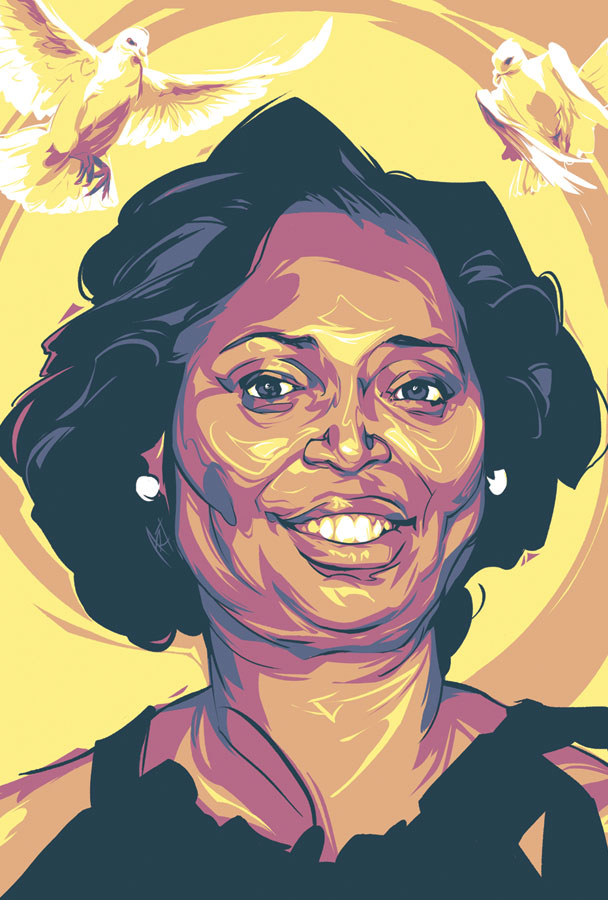Political Science Professor is a Scholar on Safari
With his research on the militarization of park rangers in Africa, Chris Day ’95 has made going on safari crucial to his academic life.

The son of a social worker and a physician, Chris Day ’95 was just a kid watching nature documentaries in Ancaster, Ontario, when he first dreamt of going on safari.
“The values instilled in me as a kid were always to be on the right side of things – for people and for wildlife,” says the director of the College’s African Studies Program and associate professor of political science, whose teaching emphasizes peace and security in Africa. “That’s probably what propelled me into wanting to be an aid worker and what drew me to Africa in the first place.”
But it was retired political science professor John Creed who drew him to politics.
“His class, Problems of the Third World, was the class that did it for me,” says Day, who, after earning his B.S. in anthropology and B.A. in political science at CofC, volunteered for a Kenyan nongovernmental organization in South Sudan and then joined Doctors Without Borders with missions in Sudan, Ethiopia, Nigeria and Sierra Leone, where he was a project coordinator for a rebel-held town called Makeni.
“That was really my first real position of responsibility in a dangerous environment. It was awesome. I mean, it was dangerous, but also a really good education about how these failed states look,” says Day, who went on to do missions in India, Uganda, Sri Lanka and Ivory Coast – where he remembers running away from gunfire. “Makeni was probably the most dangerous place I worked – but it was also really formative for me, being a manager, being a leader, keeping a multinational team together in this sort of environment.”
He’d had a son and been accepted into his doctoral program at Northwestern by the time he did his last mission in Darfur, Sudan.
“I felt really good about leaving that life and going into the Ph.D. program, which was a whole new world,” he laughs. “It’s no surprise that I did my dissertation on armed groups because I was up close and personal with these guys on a first-name basis.”
While working on his dissertation, he and his family were in Uganda’s Murchison Falls National Park, which the Lord’s Resistance Army rebels had used as a sanctuary.
“And then I kind of just started realizing, ‘Wow, these park rangers are carrying AK-47s,’” he says. “They are armed state actors in an African country, and they work alongside the military and the police to enforce wildlife laws, but also to fight counterinsurgency.”
And that’s when he decided: “At some stage, I’m going to move on from the research agenda on conflict, and I’m going to come back and do a research project on park rangers. I’m going to figure out a way to go on safari masquerading as political science research. And this will be like my academic life.”
As he made repeated research trips to Africa, the militarization of park rangers emerged as a field of study.
“What I discovered is that the militarization – the wearing of military-style uniforms, the carrying of the guns, the military formations, the ranks and the integration with the military and the police – has colonial antecedents,” he says, noting that once his dissertation was published in 2019, he began focusing on wildlife politics. “My main observation is that park rangers are usually part of how African regimes manage their own security – they are one of many sets of actors that can help regimes protect themselves. And there’s this really weird confluence with conservation park management and international organizations and foreign militaries that help arm and train park rangers. And the open question is, ‘Does increased militarization lead to better conservation outcomes?’
“It’s not necessarily always about conservation. These are institutions that have longue durée colonial antecedents that have developed over time alongside the politics of regime security,” he continues. “And so you have to pay attention to the political context. My contribution to research on wildlife conservation is how it is embedded in the political fabric of these countries.”
In a related ongoing project, Day has been rounding up archival records for African countries’ parks. In 2018, the Uganda Wildlife Authority gave him access to all the parks in exchange for his research, which he continued last summer.
“It’s a scavenger hunt for data in these countries that have been at war and don’t keep records – and it’s the most fun I’ve ever had doing research,” says Day, who has published his findings so far in scholarly journals, with more to come.
In the downtime between interviews, he gets to explore the parks with the rangers.
“It’s the best job ever,” he says. “It fulfills a lot of those childhood fantasies of being able to just sit there and hang out and look at wildlife – but also parlays that into something that somehow resembles legitimate political science.”
It is everything he ever dreamt of.



